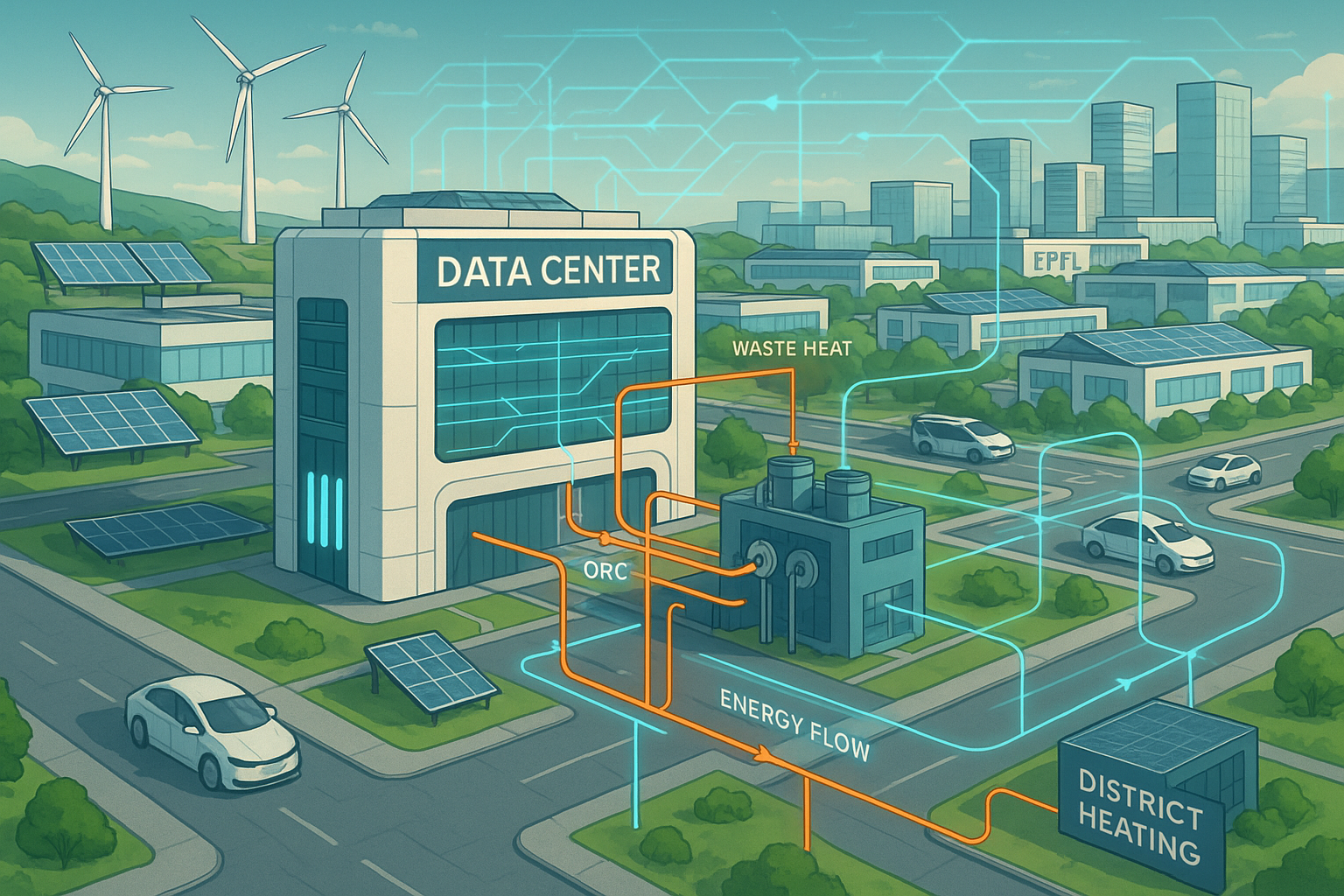The Role of Data Centres in Net-Zero Pathways: A National-Level Energy System Analysis with EnergyScope
Semester project or Master project
Fall 2025
Context
As digitalization accelerates and computational demand surges, data centres (DCs) are emerging as pivotal players in energy systems. While they are often seen as major electricity consumers, DCs can also act as prosumers—entities that both consume and supply energy services. This project seeks to investigate the evolving role of DCs within the broader context of national energy transitions, particularly in achieving Switzerland’s net-zero target by 2050. Using EnergyScope, a Mixed-Integer Linear Programming (MILP) model developed for national energy planning, the student will evaluate how data centres can be integrated into energy system pathways as flexible, energy-aware infrastructures.
This work will focus on integrating DCs into the EnergyScope framework to simulate various scenarios related to electricity demand, heat recovery, flexible load management, and their interactions with other technologies such as renewables, storage systems, and heat pumps. The project will also explore the systemic impact of different assumptions about the scale, cooling technologies, and flexibility of future DCs on national energy strategy and infrastructure planning.

Project/Tasks
- Literature review on data centre integration in energy systems and on national energy planning tools.
- Familiarisation with the EnergyScope modelling framework and its inputs.
- Scenario development: definition of baseline and alternative pathways with varying assumptions about data centre deployment, flexibility, and thermal integration.
- Integration of new data centre-related parameters and constraints into the EnergyScope model.
- Running optimisations and generating national energy transition scenarios toward net-zero 2050.
- Processing large outputs to extract relevant trends and visualise key trade-offs across scenarios.
- Interpretation and critical assessment of results, including sensitivity analyses on data centre flexibility, cooling technologies, and energy demand.
Skills
- Strong programming skills in Python, particularly for data processing and visualisation.
- Comfortable working with large datasets (e.g. time-series, techno-economic parameters).
- Understanding of energy systems and MILP-based modelling frameworks.
- Experience with GIT version control and collaborative development tools.
- Highly independent and motivated; creative approach to problem-solving and scenario design.
- Lectures:
- ME-454 Modelling and Optimisation of Energy Systems
- ME-409 Energy Conversion and Renewable Energy
- ENAC/EE/Energy system planning courses (optional but beneficial)
- ME-454 Modelling and Optimisation of Energy Systems
Administrative
This project is part of the Heating Bits research initiative, and contributes to the national-scale energy system analysis efforts led by IPESE at EPFL-Sion. The project will be supervised by Sai Sudharshan Ravi (PhD student, IPESE). If interested, please send your CV, along with a short motivation letter, to sai.ravi@epfl.ch.